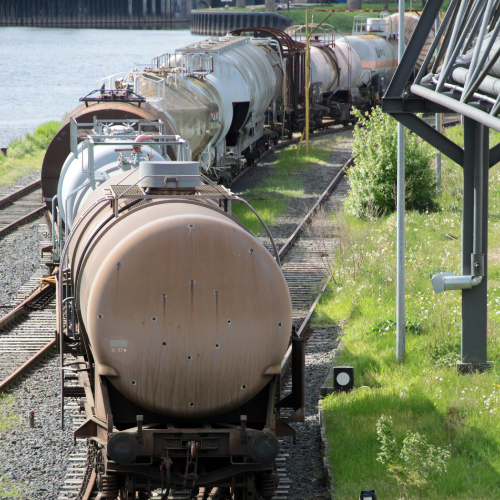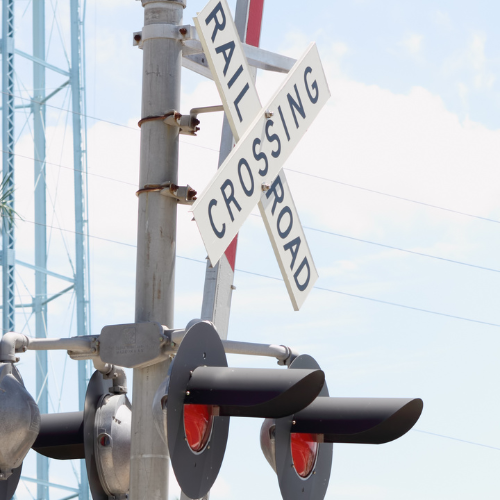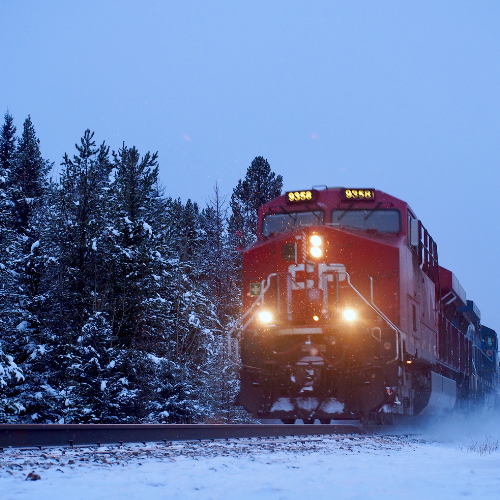Speak Now or Forever Hold Your Peace: Proposed Rail Merger in Iowa May Bring Significant Environmental Impacts
posted
on Tuesday, September 6, 2022
in
Energy News
Updated October 3, 2022
A proposed $31 billion marriage between Canadian Pacific Railway Limited (CP) and Kansas City Southern (KCS) is currently before the Surface Transportation Board (STB). The largest expected change from this union would occur on the CP mainline between Sabula, Iowa, and Kansas City, Missouri, where the projected rail traffic would increase by more than 14 trains per day.

In fact, this marriage would more than quadruple the train traffic from Ottumwa to the Missouri border. Perhaps more concerning is the risk this union poses to Iowans with little, if any, benefits. The anticipated increase in hazardous materials being transported through Iowa, including Canadian tar sands crude oil, poses a potentially significant increased risk. On some sections of the CP track, the number of train cars carrying these hazardous materials will double or triple. For example, in Muscatine the number of train cars carrying hazardous material would increase from 54 daily to 189 a day .
 The increased rail traffic will also lead to serious delays and severe traffic backups at railroad crossings, and negatively impact emergency response vehicles. The marriage would more than double crossing times. In Muscatine, the crossing time at the Mississippi Drive crossing would increase from 2 hours and 15 minutes to 5 hours and 45 minutes, or approximately 23% of every day.
The increased rail traffic will also lead to serious delays and severe traffic backups at railroad crossings, and negatively impact emergency response vehicles. The marriage would more than double crossing times. In Muscatine, the crossing time at the Mississippi Drive crossing would increase from 2 hours and 15 minutes to 5 hours and 45 minutes, or approximately 23% of every day.
Unfortunately, some communities including Muscatine, Davenport, and Bettendorf have agreed to hold their peace in exchange for cash. If the STB approves the marriage, Davenport will be paid $10 million, and Bettendorf and Muscatine would each be paid $3 million. This is especially disconcerting given the significant environmental justice implications for these communities.

On September 13, more than 100 people filled a room in the Davenport River Center. The meeting lasted over three hours where dozens of people decided to speak now against the merger. The STB's Office of Environmental Analysis published a draft environmental impact statement with a comment deadline of October 14.
Now is not the time to hold your peace on this proposed merger. A successful merger will result in hundreds of thousands of train cars loaded with dirty Canadian oil being transported through Iowa every year. A recent Huffington Post article noted that since 2013, twenty one of these trains have derailed in North America bringing with them loss of human life and a scarred environment. So when the environmental impact statement characterizes the risk to Iowans as the slight increased risk of spills and accidents, it is hard to imagine how a quadrupling of train traffic equates to a slight increased risk.
At the September 13 meeting, a representative from the Office of Environmental Analysis said because rail traffic is projected to increase on rail lines, the risk of an accident, such as a derailment, spill, or collision with another train or motor vehicles would increase on those rail lines through Iowa. However, this is not a question of if a train will derail, but when a train will derail. As aptly expressed by former Davenport Mayor Bill Gluba, "When one of these trains derails while passing through this area of mega public events, thousands of people could be killed. This is a disaster of monumental proportions just waiting to happen and you have the power to prevent it."
It is time to speak now to oppose this marriage. The STB is accepting comments on the Environmental Impact Statement until October 14. One more virtual public meeting will be held on October 19 at 6:00 p.m. The grassroots movement called Stop the Train has gathered nearly 1,000 signatures. To see more on how this rail union will impact Iowa view the Canadian Pacific Railway Limited and Kansas City Southern fact sheet.
- carbon pollution
- environmental justice